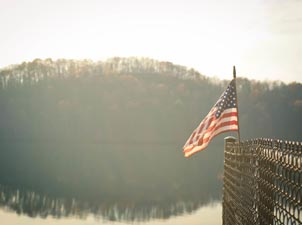
Juneteenth: A Celebration and Call for Freedom
Jeremiah Pennebaker
June 19, 2018
“In its spread across the country and gradual supplanting of other emancipation celebrations, Juneteenth has always retained that sense of belatedness. It is the observance of a victory delayed, of foot-dragging and desperate resistance by white supremacy against the tide of human rights, and of a legal freedom trampled by the might of state violence. As the belated emancipation embedded in the holiday foretold generations of black codes, forced labor, racial terror, police brutality, and a century-long regime of Jim Crow, it also imbued the holiday with a sense of a Sisyphean prospect of an abridged liberty, with full citizenship always taunting and tantalizing, but just one more protest down the road.” – Vann R. Newkirk II, “The Quintessential Americanness of Juneteenth”
“What’s Juneteenth again?” I ask myself in my head because I did not want to admit out loud in front of my fellow interns that I didn’t know the meaning behind it. We were trying to figure out how to better integrate racial justice themes into our summer service locations. For the longest time my only connection to Juneteenth was an obscure Boondocks reference. Luckily for me there was another Black student in our intern small group who was able to explain what it was. “Juneteenth is the celebration of coming freedom,” she said.
“Coming freedom” tells us that freedom exists, but it is not here yet. The Emancipation Proclamation — the legislation that freed all enslaved Black women and men on U.S. soil — was signed into law on January 1, 1863. But like many things concerning the freedom and civil rights of Black individuals, the process was delayed. Juneteenth was established two-and-a-half years after the Emancipation Proclamation on June 19, 1865, when Major General Gordon Granger issued Order #3 in the district of Galveston, Texas informing the residents that slavery was abolished and that the freed people should now operate under an employer/ employee relationship.
Over two years after the Emancipation Proclamation, news of liberation finally reached slaves in the southernmost parts of the country. Despite this, enslavement and mistreatment of Black people continued as slave owners took their slaves to the yet-to-be-unionized New Orleans, where emancipation was just folklore. There was no relief or instant jubilation as many might imagine; instead, some faced consequences if they celebrated too openly or tried to run away. This is evident in the account of former slave Susan Merritt in Leon Litwack’s book, Been in the Storm So Long: The Aftermath of Slavery: “Those who acted on the news did so at their peril. You could see lots of niggers hangin’ to trees in Sabine bottom right after freedom, ’cause they cotch ’em swimmin’ ‘cross Sabine River and shoot ’em.’”[1] Although slaves were free in theory, they were not free in practice.
Coming freedom is the Black American Dream–the idea that we will be free one day as it has already been proclaimed. Growing up in the church I imagined that freedom was something similar to the idea of kingdom come. As my father would say, we stand on tiptoe anticipation for the day that we can lay our burdens down and rejoice in the presence of the Lord. But what I’ve also learned about kingdom come and coming freedom is that obstacles still lie between us and the freedom. Lynch mobs and police units still lie between us and the coming freedom. Protests and assassinations still lie between us the coming freedom. Colorblind classmates, coworkers, and Members of Congress still lie between us and coming freedom. But the hope within coming freedom and the jubilation of Juneteenth lies within the fact that regardless of what lie between us and coming freedom, it is still coming.







